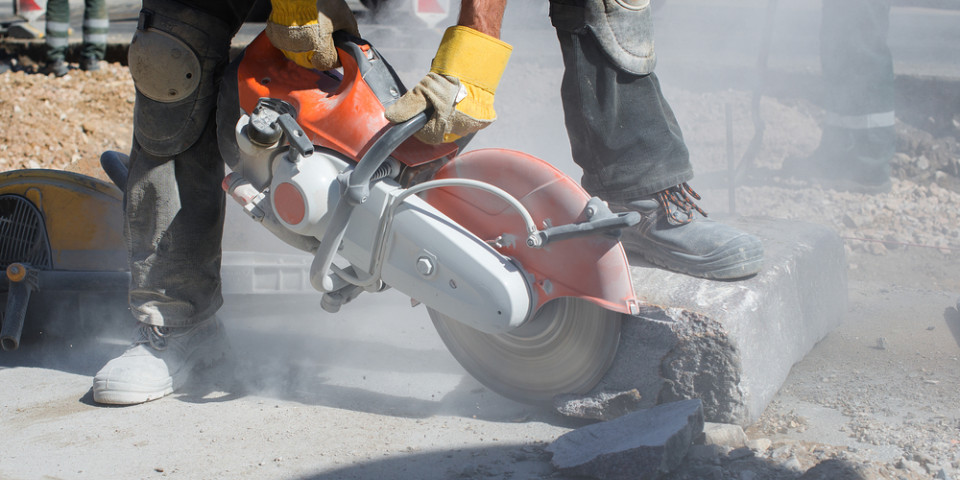Latest News
Protecting construction workers from silica dust
Posted on Tuesday, 23rd August 2022

Silica is found in construction materials – Natural stones, sandstones, bricks, clay, and concrete products. It is even found in some plastics as silica is used as a filter during the production process.
What is silica?
Silica is a natural compound and has multiple uses in the construction industry.
However, exposure to fine silica particles vary between distinct types of materials with fine dust remaining in the air from many different working activities. For example:
- Quarrying and stone processing - Rock drilling, blasting, breaking, crushing, and screening
- Stone production (particularly on sandstones as they are made-up of around 70% silica) into architectural masonry, cladding, traditional masonry blocks, and natural walling stone
- Refractory production, cutting, polishing, and finishing products
- Concrete product and manufacturing and production
- Demolition processes where encountering concrete, natural stone, brick, mortar, plaster, roofing products are prevalent
Be informed about the effects of breathing silica dust.
Workers do not have to get sick when working with materials containing silica. Silica related illnesses are 100% preventable.
The simplest steps to prevent exposer while working around construction products include:
- Using the correct responsive respiratory protective equipment
- Wear a face mask, and protective clothing
- Use blasting cabinets and proper ventilation
- Use wet production methods when cutting, or grinding products
- Limit the time you work in duty production environments
- Follow good personal hygiene rules –
- Do not eat or drink in dusty work-related areas
- Always Shower and change clothes after work to prevent taking dust particles home
So, know the hazards and take precautions to avoid exposure.
Remember, continued exposure can lead to developing health complications including, silicosis a long-team lung disease caused by inhaling fine crystalline silica dust over many years.
It is the responsibility of employers to provide a safe working environment for all employees.
If you find yourself in a workplace or working on construction sites where you are working around products that are known to contain crystalline silica there are health and safety training programmes that you can sign-up to.
Essential Site Skills offer extensive workplace health & safety training courses including our popular Face Fit Train the Tester course that provide those who are required to wear responsive respiratory protective equipment, the knowledge of how to conduct face fit testing using Qualitative method. If you are responsible for health and safety within your organisation, then it is essential that face fit testing is conducted correctly, and documented evidence is recorded.
All ESS face fit testing and train the tester courses are delivered by our Fit2Fit accredited tutors.
If you want to know more about our Face fit and related Health and Safety courses including:
Control of Substances Hazardous to Health (COSHH)
Non-Licensable work with Asbestos (UKATA)
Go to https://essentialsiteskills.co.uk/category/face-fit-testing
You can book direct online, or you can contact one of our expert training advisors direct: 0115 8970 529 they will assist you find an alternative training location or date or create bespoke training for your organisation.
We are one of the best providers of health and safety training courses in the UK.
All our upcoming public courses can be viewed by month and year online
https://essentialsiteskills.co.uk/training-calendar
We can deliver in-house accredited training courses right at your premises, anywhere in the UK.
For more specific requirements, we are also happy to customise existing courses to meet your objectives. Call 01158 970 529 and talk to a member of our team. www.essentialsiteskills.co.uk


